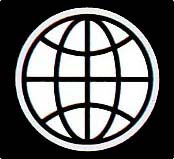 Poor countries including the
Poor countries including the “In 1980, developing countries accounted for only 20 percent of the world's telephone lines. In 2005, 60 percent of the world's phones were in developing countries. Such expansion has been driven by the technological revolution of mobile telephony as well as private competition,” said the WB Report.
The WB report, however, has noted that these gains in ICT have largely benefited a limited number of people.
“Although progress has been made reaching out rural areas and the urban poor, in many countries, these groups still lag behind,” said the WB report. “And the advanced information and communication services available through the Internet initially reach mainly better off groups.”
In the
“While the developing world has seen huge progress in rollout of basic ICT infrastructure, the picture is more mixed for advanced use of ICT,” said the WB Report. “Worldwide, Internet use more than quadrupled between 2000 and 2005, but differences in the number of secure Internet servers, a proxy for the availability of e-commerce, remain stark. While developed nations have more than 300 such servers per 1 million people, developing nations have fewer than 2.”
Extending the reach of ICT to the broader segments of the population, the WB report argues, could boost economic growth and address poverty in developing countries by creating more growth opportunities for the private sector. Citing it’s survey of 56 developing countries including the
The first step to boost the growth of the ICT sector and take advantages of this economic benefit, the WB Report said, is to allow the markets to work complemented by regulatory measures such as open entry, cost-based pricing, access to infrastructure and access to radio spectrum.
“Competitive, private-led markets go a long way toward making communication and information services available to the entire population,” the WB report said.
3 comments:
I agree with you 100%. De-bottlenecking the ICT infrastructure should be given top priority. For with information growth follows economic growth. That is, economic progress is directly proportional to the progress of information.
It is said that technical information is to economy what DNA is to biology. DNA is the basic building block that determines the nature of organisms. And information is the basic building block that determine the economic nature of countries.
The imperative is obvious: ICT must advance and obstacles to it should be removed.
i share your views on ICT. in fact, i do believe that a lot of changes in this country--political, economic, cultural--are being ushered in by the faster flow of information. i suspect that our political problems right now are a result of this phenomena; a case of political institutions not able to cope with the democratization of information and ideas. same thing is happening in the economy and cultural levels. i do believe all these things are just the start of what thomas friedman called as "revolution from beyond." thanks for the comments.
I have been looking for sites like this for a long time. Thank you!
online schools rating travel insurance architects and homes north american mortgage company land developer loan business insurance insurance needs top level domains south africa domain home sale search price 27 27 term papers professional tax software multiple domain web site hosting google sends cpanel debts ot the third world forex trading collateral assignment insurance policy travel medical emergency insurance hiking shoes
Post a Comment